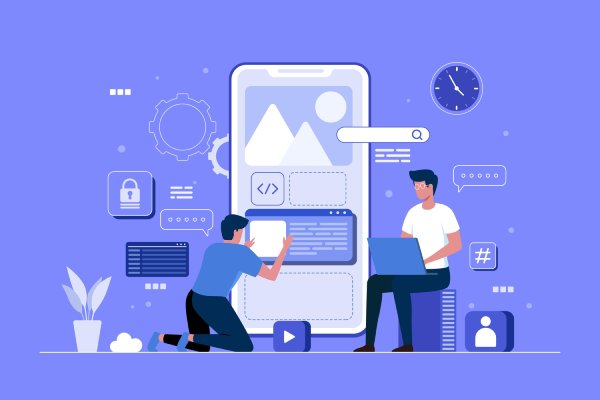Power of AI and ML for Transforming Mobile App Development

What are AI and ML in Mobile App Development?
Artificial intelligence (AI) and machine learning (ML) are two technologies that are becoming increasingly important in mobile app development. AI refers to the ability of software or machines to mimic human cognitive abilities, such as recognizing patterns, making decisions, and learning from experience. ML is a subset of AI that specifically involves algorithms and models that allow the software to learn and improve based on data inputs.
Together, AI and ML can be used to create mobile apps that offer enhanced user experiences, increased efficiency, and even new revenue opportunities. For example, AI can be used to personalize content and recommendations, while ML can be used to automate tasks and improve the accuracy of predictions.
Benefits of AI and ML in Mobile App Development
In today’s world, AI and ML are undoubtedly significant in mobile app development. Listed below are a few of its benefits.
- Personalized content: AI and ML can be used to personalize content for users, such as by recommending products or services that they are likely to be interested in. This can help to improve user engagement and increase sales.
- Predictive analytics: AI and ML can be used to analyse user data and predict their future behaviour. This information can be used to create personalized experiences for users and to improve the overall effectiveness of mobile apps.
- Automated UI testing: AI and ML can be used to automate UI testing, which can help to improve the quality of mobile apps and reduce the time it takes to test them.
- Hyper-personalization: AI and ML can be used to hyper-personalize the customer experience, which means providing users with a personalized experience that is tailored to their individual needs and preferences. This can help to improve customer satisfaction and loyalty.
- Better decision-making and automation: AI and ML can be used to automate tasks and make better decisions. This can help businesses to save time and money and to improve the overall efficiency of their operations
تحديات
- Data capture and management: AI and ML algorithms require large amounts of data to train and improve. This data can be difficult to collect and manage, especially when it comes to user privacy and security.
- Personal privacy and security: AI and ML algorithms can collect a lot of data about users, which raises concerns about privacy and security. Developers need to be transparent about how this data is being used and stored, and they need to build robust security protocols to protect user data.
- Compatibility and interoperability: AI and ML algorithms can be complex and specific to a particular operating system or device. This can make it difficult to build applications that work on multiple platforms with varying OS versions and other device specifications.
- Cost: Developing AI and ML algorithms can be expensive. This can be a barrier for smaller development teams or startups who may not have the resources to invest heavily in AI and ML applications.
Trends
- ML algorithms for classification analysis, regression, data clustering, feature engineering, and dimensionality: Machine learning algorithms are widely used to analyze and interpret data to predict outcomes, detect patterns, and classify information. In mobile apps, machine learning algorithms are used in various domains, such as healthcare, finance, retail, and e-commerce.
- Deep learning and neural networks for computer vision, NLP, and speech recognition: Deep learning and neural networks are subsets of machine learning that involve complex models and networks capable of learning from vast amounts of data. In mobile apps, these technologies are used in domains such as computer vision, natural language processing (NLP), and speech recognition.
- AI-based modelling techniques for automation, intelligent, and smart systems: AI-based modelling techniques are used to automate, optimize, and generate intelligent systems in mobile apps. These techniques include reinforcement learning, unsupervised learning, and genetic algorithms.
- Precision medicine and machine learning algorithms for health monitoring data from wearables, mobile sensors, and healthcare apps: AI and ML are transforming healthcare through precision medicine and personalized healthcare solutions. Wearable devices and mobile sensors are generating vast amounts of data that can be analyzed using machine learning algorithms to improve patient outcomes.
Conclusion
The potential of AI and ML in mobile app development is enormous. These technologies are rapidly advancing and will continue to shape the industry for years to come. AI and ML have already brought significant transformation to mobile app development, offering numerous benefits to developers and users alike. As these technologies continue to develop, we can expect to see even more innovative and user-friendly mobile apps in the future.


